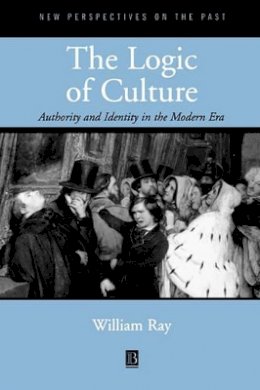
Stock image for illustration purposes only - book cover, edition or condition may vary.
The Logic of Culture: Authority and Identity in the Modern Era
William Ray
€ 64.70
FREE Delivery in Ireland
Description for The Logic of Culture: Authority and Identity in the Modern Era
Paperback. This work offers an analysis of the underlying grammar or "logic" of "culture". Ray argues that the disparate models, ideologies, and ethics that have been advanced in the name of culture derive from a shift in our ways of thinking that occurred before the advent of modernity. Series: New Perspectives on the Past. Num Pages: 224 pages, 0. BIC Classification: JFC; JH. Category: (P) Professional & Vocational; (UP) Postgraduate, Research & Scholarly; (UU) Undergraduate. Dimension: 228 x 155 x 13. Weight in Grams: 330.
This book proposes an analysis of the underlying 'logic' of culture, drawing on a wide range of material not previously examined in works of this kind.
This book proposes an analysis of the underlying 'logic' of culture, drawing on a wide range of material not previously examined in works of this kind.
Product Details
Format
Paperback
Publication date
2001
Publisher
John Wiley and Sons Ltd United Kingdom
Number of pages
224
Condition
New
Series
New Perspectives on the Past
Number of Pages
228
Place of Publication
Hoboken, United Kingdom
ISBN
9780631213444
SKU
V9780631213444
Shipping Time
Usually ships in 7 to 11 working days
Ref
99-50
About William Ray
William Ray teaches literature, literary theory, and the Humanities at Reed College. He has previously taught at the State University of New York at Plattsburgh and the University of Oregon. His previous books include Literary Meaning (Blackwell Publishers, 1984) and Story and History (Blackwell Publishers, 1990) He is currently working on the evolution of fiction in the eighteenth and nineteenth ... Read more
Reviews for The Logic of Culture: Authority and Identity in the Modern Era
"This densely and incisively written book provides a compelling theoretical framework for the understanding of the "logic" of culture in modern times. From the rhetoric of the French Revolution to contemporary museum displays, from Schiller's aesthetics to concepts broached by Matthew Arnold, Foucault and Bourdieu, Ray engages a variety of periods, genres, issues, and regimes of thought with mastery and ... Read more
